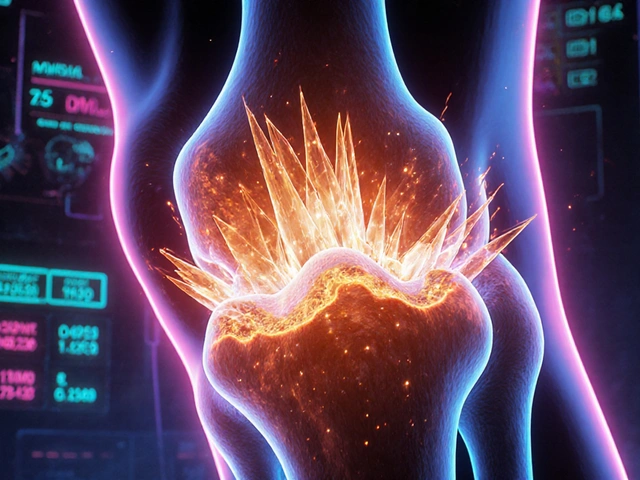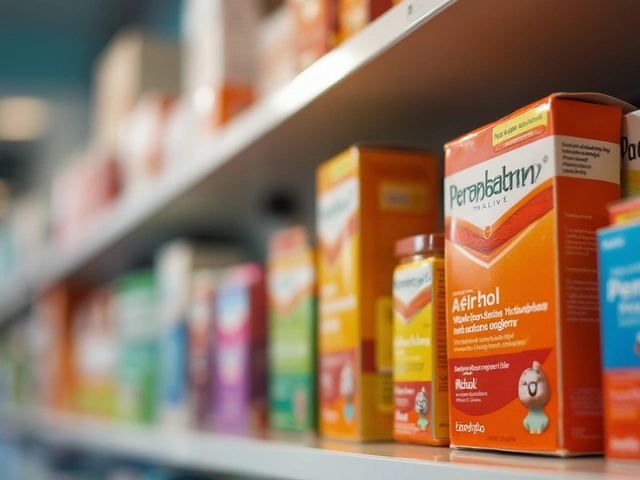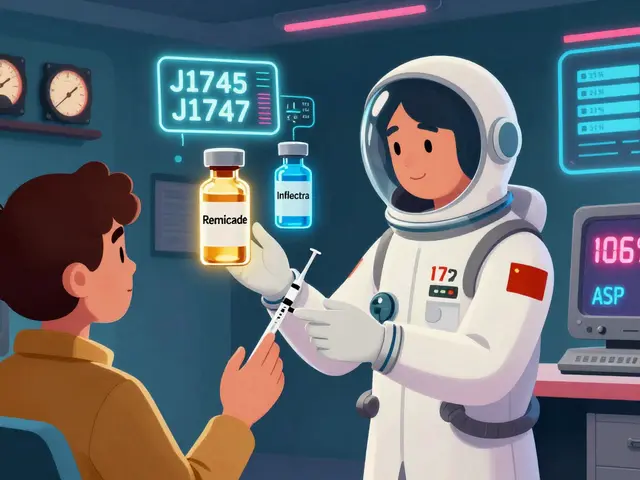GERD treatment: practical steps that actually help
Heartburn that won’t quit isn’t just annoying — it can damage your esophagus. If you have GERD (gastroesophageal reflux disease), small daily changes often help. Below are clear, practical steps you can try today, plus when to see a doctor.
Start with habits. Avoid late meals and lying down within three hours of eating. Eat smaller plates and slow down — big meals push stomach acid up. Cut back on trigger foods: caffeine, chocolate, peppermint, fried foods, and sauces. Quit smoking and limit alcohol; both relax the valve between stomach and esophagus.
Change your sleep setup. Raise the head of your bed 6 to 8 inches or use a wedge pillow. Elevation keeps acid in the stomach while you sleep and reduces nighttime reflux. Sleep on your left side — studies show it lowers nighttime reflux compared with the right side.
Try over-the-counter options. Antacids like Tums neutralize acid fast but wear off quickly. H2 blockers (famotidine) reduce acid for several hours and work well for mild symptoms. Proton pump inhibitors (PPIs) like omeprazole and lansoprazole are stronger and good for regular heartburn, but they need a few days to reach full effect.
If you use a PPI, use the lowest effective dose and re-evaluate after 8 to 12 weeks. Long-term PPI use can increase risks like bone fractures, low magnesium, and gut infections. Don't stop suddenly without talking to your doctor; symptoms can rebound.
When medicine and lifestyle changes don’t help, get checked. Alarm signs include difficulty swallowing, unintentional weight loss, vomiting, bloody or black stools, or persistent chest pain. Your doctor may recommend testing: an upper endoscopy to look at the esophagus, pH monitoring to measure acid, or manometry to check motility.
There are non-surgical and surgical options for persistent GERD. Endoscopic procedures can tighten the valve for some people. Anti-reflux surgery (Nissen fundoplication) wraps the top of the stomach around the lower esophagus and works well for selected patients who don’t want lifelong medication. Discuss risks, benefits, and recovery times with a specialist.
Practical tips that make a difference: keep a food diary to spot triggers, avoid tight belts or waistbands, and aim for steady weight loss if you’re overweight. Try not to exercise immediately after eating. If symptoms worsen or meds stop working, see a gastroenterologist.
GERD is manageable for most people. With focused habit changes, smart use of OTC drugs, and timely medical care, you can reduce reflux and protect your esophagus. Ask your doctor for a plan that fits your routine and health needs.
Common mistakes
Masking symptoms with antacids every day instead of fixing habits is common. Skipping follow-up when symptoms return after stopping PPIs delays diagnosis.
When to expect improvement
With lifestyle changes you may notice less heartburn in days; H2 blockers take hours, PPIs need one to four weeks. If nothing improves after 8 to 12 weeks.
 18 April 2025
18 April 2025
Esomeprazole Alternatives: 6 Real Options You Should Know About
Looking for alternatives to esomeprazole? This guide breaks down six real options for treating acid reflux, heartburn, and GERD, including how they work, key pros and cons, and helpful tips. If esomeprazole isn’t cutting it or your doctor recommended a change, you’ll get clear info on each alternative. The article uses direct comparisons to make the choice easier, and even throws in some facts you probably didn’t know. By the end, you’ll feel much more confident about talking over your options with your doctor.
Latest Posts
-

Gouty Arthritis Joint Protection: Proven Tips to Prevent Joint Damage
-

Top Alternatives to Stromectol for Parasitic Infections in 2024
-

Reimbursement and Coding for Biosimilars: How Billing Works Under Medicare Part B
-

5 Alternatives to Hydrocodone for Pain Relief
-

Biosimilar Switching: What Happens When You Change From Originator

19